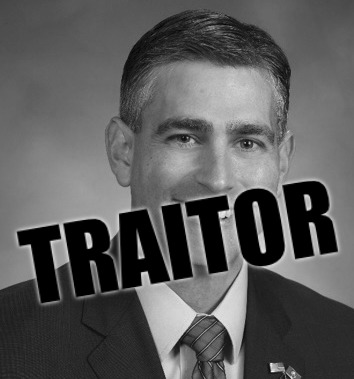Washington State Representative Skyler Rude has resigned from the state’s LGBTQ Commission, citing concerns about its operations and what he called partisan policy positions. But if the commission is advocating for policies that serve the LGBTQIA+ community—its entire purpose—then its positions aren’t partisan, they’re mission-driven. The real issue is that Rude sees them as political in the first place. Republicanism is a learned behavior. He was born gay.
As one of the few openly LGBTQ Republicans in Washington, Rude has long walked a fine line between personal identity and party loyalty. His resignation suggests that the commission’s advocacy clashed with his political stance. But LGBTQ rights are not inherently partisan—they are human rights. If the commission was pushing for protections, inclusion, or policies that directly impact LGBTQ lives, was Rude rejecting its work, or just distancing himself for political reasons?
The LGBTQ Commission was created to advise lawmakers and advocate for the needs of LGBTQ Washingtonians. If its work aligns more with Democratic policies, that’s not a reflection of bias—it’s a reflection of political reality. The Republican Party has historically resisted LGBTQ protections, so any commission dedicated to advancing those protections is naturally going to clash with the GOP’s stance. By labeling this as partisanship, Rude isn’t challenging bias; he’s denying the reality of who stands for LGBTQ rights and who doesn’t.
By resigning, Rude lost an opportunity to influence the commission from within. As an LGBTQ Republican, he could have helped bridge political divides and shape discussions in ways that resonated across party lines. Instead, he walked away. Did he feel pressured by his party? Or did he simply not want to be associated with the commission’s efforts? Either way, the message is clear: when LGBTQ advocacy pushes for real change, Rude considers it too political to engage with.
This decision also raises concerns about representation. LGBTQ conservatives already struggle for visibility within the GOP. If even someone like Rude chooses to step back from a commission designed to uplift LGBTQ voices, what does that signal to others in his party? It reinforces the idea that being openly LGBTQ in the GOP is only acceptable if it doesn’t challenge party orthodoxy. But at what cost? Rude was born into his identity. His political beliefs were chosen. And when forced to pick between the two, he chose the one that required compromise.
For his constituents, the impact is unclear. Some may see his resignation as a stand against perceived government overreach. Others, especially LGBTQ voters, may feel abandoned. If Rude truly wants to support LGBTQ people in the 16th District, how does he plan to do it now? Walking away from a commission that exists to advocate for LGBTQ rights sends a clear signal about what he considers worth fighting for—and what he doesn’t.
The bigger issue is whether identity-based advocacy can ever be truly nonpartisan. Many institutions pushing for LGBTQ rights align with Democratic policies simply because the Republican Party has resisted progress in this area. If Rude sees that as partisanship, is he rejecting bias—or just rejecting the policies themselves?
His resignation highlights the growing divide between LGBTQ individuals and the Republican Party. Can someone be openly LGBTQ and still thrive in GOP politics without making compromises? Or is choosing the party over advocacy the only way to survive? Rude’s decision suggests the latter.
As polarization deepens, bipartisan cooperation on LGBTQ rights seems less likely. If even LGBTQ Republicans feel pressured to step back, it signals how deeply entrenched these divides have become. The question isn’t whether the LGBTQ Commission is partisan—it’s whether the Republican Party has left any space for LGBTQ people to advocate for themselves without being seen as disloyal.
Skyler Rude’s resignation isn’t just about a commission—it’s about the choices LGBTQ conservatives face. If supporting their own community is seen as too political, what space is left for them in a party that still refuses to fully embrace their rights? Rude’s choice wasn’t between partisanship and neutrality. It was between his party and who he fundamentally is. And he chose his party.





